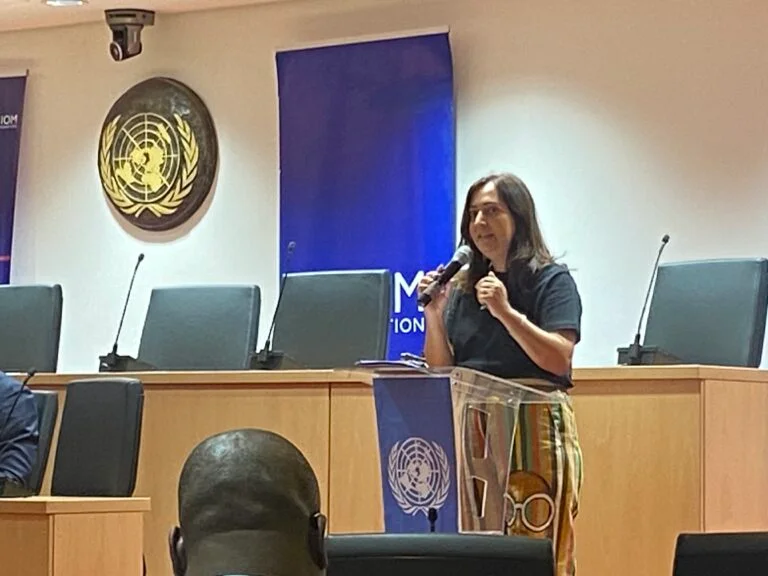The International Organisation for Migration (IOM) has called for the inclusion of young people in the creation and execution of migration-related policies and programs.
Ms. Paola Pace, the Deputy Head of Mission for IOM in Nigeria, made the call on monday during the inauguration of the Youth Advisory Board on Migration in Abuja. The youth-led platform is designed to amplify young voices and enhance their participation in shaping migration policies and promoting community-level advocacy.
Pace explained that the board’s establishment aligns with IOM’s Youth Strategy 2027 and its broader goal of empowering young people as key partners in developing sustainable migration solutions.
Pace noted that more than 300 applications were received, from which 22 youths were selected, 12 based in Abuja and 10 in Lagos, representing various states across Nigeria.
“We want to focus on the positive aspects of migration, a phenomenon that has always existed and will continue to exist.
“At the same time, we must also address the negative impacts when migration is irregular, unsafe, or forced,” she added.
Highlighting Nigeria’s youthful population, she said: “More than 70 per cent of Nigeria’s population is under the age of 30.
“We cannot design policies for youth without involving them directly. You are the voice of your generation, and without you, we wouldn’t be having this important conversation about migration.”
Pace said the Youth Advisory Board would promote youth inclusion in migration-related policies and programmes, strengthen youth voices in migration dialogue, and help prevent irregular migration, smuggling, and trafficking.
Also speaking at the event, Minister of Youth Development, Ayodele Olawande, expressed concern over the increasing trend of irregular migration among Nigerian youths, which he said often led to trafficking, detention, and even death.
Represented by his Chief of Staff, Mr Mohammed Abdullahi, Olawande called for collaborative efforts to ensure youth voices were heard in national migration governance.
“Government alone cannot do everything. That’s why I’m urging the Youth Advisory Board to work closely with the Ministry to develop a three-year action plan on youth and migration.
“This plan should focus on awareness creation, support for education, job creation, and promoting safe and regular migration pathways,” he said.
He emphasized: “Nigeria’s greatest asset is not oil or gas; it’s our young people.
“If we equip them with the right tools and opportunities, they will become the drivers of national development.”
Sandra Vermuijten, Head of Programmes at the German Cooperation (GIZ), stressed the importance of a holistic view of migration.
“Migration has many faces, some positive, some negative. But we must look at it from a 360-degree perspective, recognising both the challenges and the value it brings.
“For policies to be effective, it’s not about us imposing solutions. It’s about you, the youth, telling us what you need and being at the forefront of shaping those policies,” she said.
Cheikh Touré, UNODC Representative to Nigeria, warned that Nigeria remained one of the most affected countries in West Africa by human trafficking and irregular migration.
He attributed this partly to economic challenges fueling the “Japa” wave, where many youths sought opportunities abroad through unsafe means.
“Each trafficked life is a stolen potential, not just for the individual, but for Nigeria, for Africa, and for the world,” he said.
Touré emphasised that combatting transnational crime must go beyond arrests and prosecutions.
“This Board represents a step toward safeguarding Nigeria’s future, protecting young talents from criminal networks and creating safe, legal pathways for youths to pursue their ambitions without risking their lives.”



